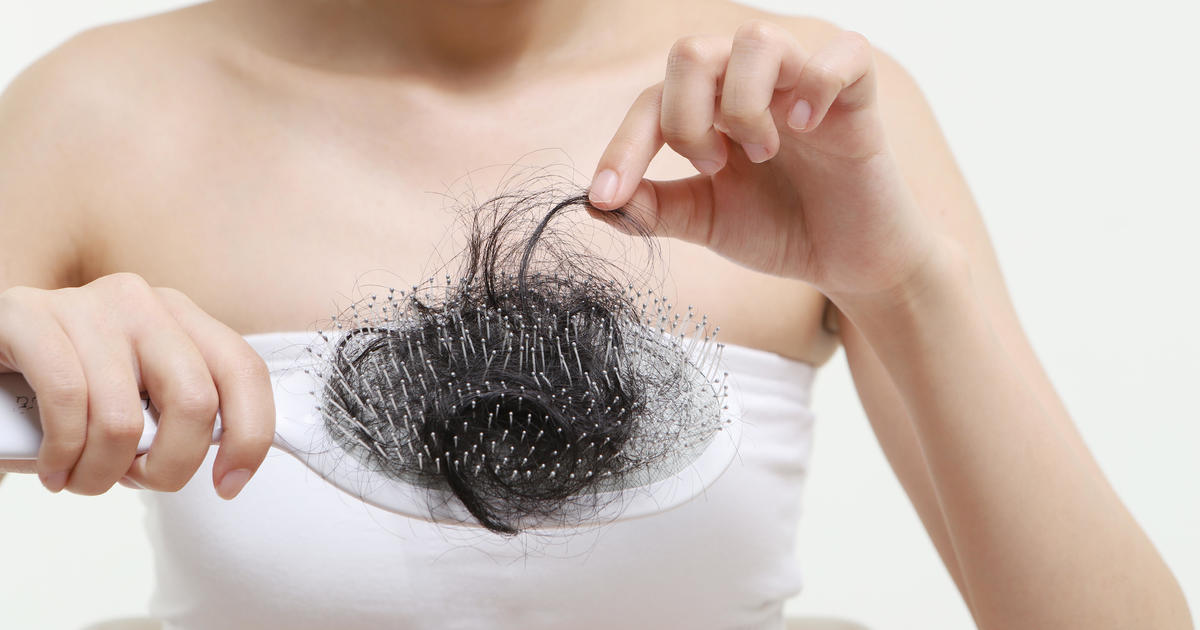The COVID-19 pandemic has had an unexpected consequence for many people: hair loss. As the world grapples with this unprecedented health crisis, individuals have found themselves dealing with a unique challenge that they did not anticipate – sudden and severe hair loss.
For some, it is temporary; however, for others, it can be permanent and cause considerable distress. In this article, we will explore the causes of Covid-induced hair loss and how to manage it if you are affected. We will also look at ways to prevent further damage from occurring to maintain healthy locks of hair even during such uncertain times.
Causes of Hair Loss During COVID-19

Source: assets.medpagetoday.net
The onset of the COVID-19 pandemic has presented a range of unexpected issues, one of which is hair loss. The reasons for this phenomenon can be both psychological and physical.
On the psychological side, individuals are enduring increased levels of stress due to fear surrounding the virus, economic uncertainty, and social isolation; all factors that may stimulate excessive shedding or thinning.
Physical causes include changes in diet due to limited food access as well as decreased exercise while under quarantine conditions. Additionally, some believe that medications used to treat COVID-19 can also contribute to hair loss or telogen effluvium (TE). Whatever the cause may be, it’s clear that many people have been affected by this unforeseen consequence of the pandemic.
Potential Treatments for Hair Loss

Source: i0.wp.com
Potential treatments for hair loss caused by COVID-19 can be both physical and psychological. On the physical side, medications such as minoxidil or finasteride can help slow down or stop hair shedding while also promoting regrowth.
Additionally, dietary changes may have positive effects on hair health; eating foods rich in vitamins A and C to support sebum production, avoiding processed foods to reduce inflammation, and taking supplements like biotin to provide additional nutrients are all potential strategies.
For more severe cases of thinning or baldness, surgical procedures like follicular unit transplantation (FUT) and scalp reduction surgery exist as well although it’s important to consult a doctor beforehand before proceeding with these options.
In addition to these physical interventions, addressing underlying mental health issues related to the pandemic could prove beneficial when dealing with Covid-induced hair loss – talking about your feelings with a professional therapist might be one way of moving forward through this difficult time in life.
Psychological Impact of Hair Loss

Source: .skalptec.com
The psychological impact of hair loss can be deep and long-lasting. Not only is it a physical reminder of the virus, but it can also cause feelings of insecurity, anxiety, or shame for those affected. Hair has an important role in our identity and self-esteem; when we lose it, we may feel disconnected from ourselves and our appearance.
The emotional toll associated with this pandemic should not be underestimated as individuals struggle to process their own experiences alongside the global health crisis at large. It’s important to take care of mental health during these difficult times – reach out for professional help if needed – so that you can deal effectively with any psychological issues related to Covid-induced hair loss.
Conclusion

Source: assets.medpagetoday.net
COVID-19 has had an unforeseen consequence, hair loss. This is a concerning problem for many people and can be caused by the stress of quarantine, the use of protective masks, or even a vitamin deficiency. It is important to talk to your doctor about any issue you experience with your hair health during this pandemic as it could be indicative of other underlying conditions.
Hair loss treatment options vary depending on what is causing it but may include medications such as minoxidil which helps promote new hair growth or biotin supplements that help strengthen existing strands. With proper diagnosis and treatment from a medical professional, you can have hope in restoring your healthy head of hair!




